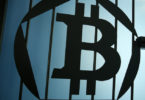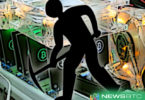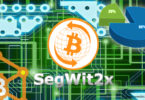Back in 2008, Satoshi Nakamoto conceptualized the first blockchain. The following year, he used it as a core component of the digital currency, bitcoin. Since then, blockchain has become something of a buzz word. So what is it, and why does it matter?
What blockchain does is create a unique identity for digital assets. When I have a physical pen – it is easy to trace who is holding that particular pen. It is obvious if I am holding the pen, or I pass it to you. This is a bit trickier when I have a digital pen. If I forward you a pen – how can you tell I haven’t also forwarded it to my friend Alex?
Blockchain gives pens (or blocks) a history of ownership (a chain) so you can tell where each pen is (there are a finite number of pens). Each pen can only be in one place at a time and has had its own path there – if I gave you my pen, I no longer have one to forward to Alex. Everyone can see where the digital pens are on a public ledger – just like everyone can normally see where all the physical ones are.
Where this gets interesting is not when we own unique digital pens, but when we start applying this to the financial system – what if we use it for a currency (like bitcoin) or to record who owns a share?
There are some pretty big statements being made about how disruptive blockchain could be. Could it reshape the role of banks? Exchanges? Settlement systems? Certainly there are inefficiencies in the financial system that blockchain offers a solution to. A blockchain world means that, rather than each of these players having their own spreadsheets of who owns what stocks, there is one universal one that can be updated.
But does it matter?
Certainly – but probably not for a while. It has real implications particularly for exchanges and share registries (think ASX, CPU). Blockchain means settlement could potentially be reduced to minutes or seconds rather than days, or that you and I can trade shares directly – rather than going through a bank, an exchange and a register.
For now, we still need an exchange to see the market, a register to create and settle shares and a broker to execute a trade. But whether this exact structure will remain unchanged is uncertain. By way of example, whilst paper stock certificates still exist, they are now significantly costlier (up to $500 a pop) and were certainly disrupted by digital forms.
Source: http://rogermontgomery.com/whats-the-hype-about-blockchain/







